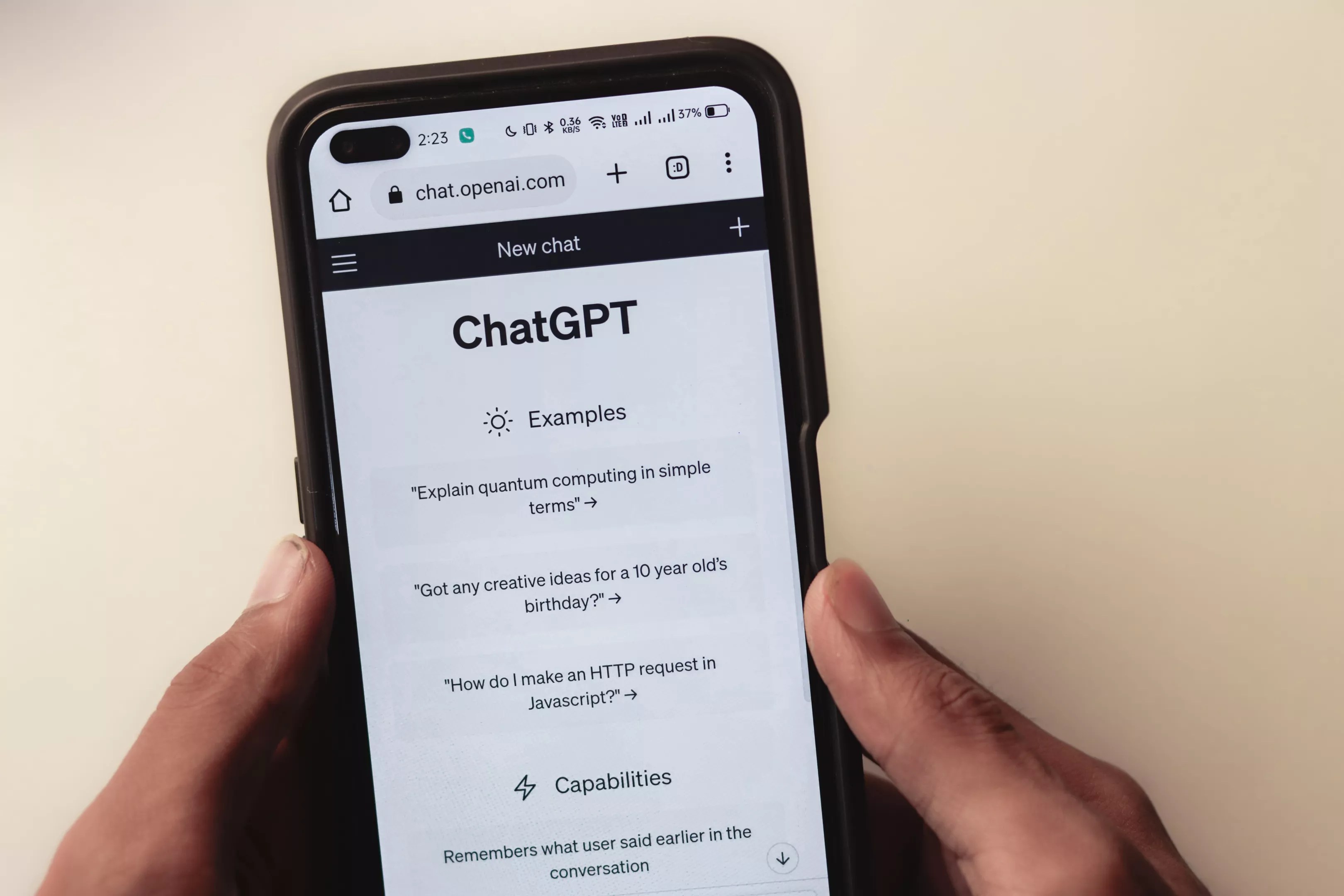
Photo by Sanket Mishra on Unsplash

Audio By Carbonatix
The world is getting harder each day, with mass shootings and rising prices and worsening climate change. So one can’t be blamed for wanting to make life a little easier, which is just what ChatGPT purports to do.
ChatGPT, the artificial intelligence chatbot by OpenAI, launched late last year – much to the chagrin of educators everywhere. The Observer tested out ChatGPT by asking it to create a 500-word news article about the Texas teacher shortage. We were pretty impressed by what it produced in a matter of seconds, even if the story was a tad redundant and the overall language stilted at best.
Now, kids can even download ChatGPT onto their phones for bot-tutoring on algebra exercises. (Feel that? It’s the fear and trembling of a thousand math teachers. Maybe more. Dunno. We had to learn math the old-fashioned way: We didn’t.)
@ChatOn – AI Chatbot Assistant ChatGPT AI-driven powered app
Look. Everyone at the Observer was once a student themselves – seriously, we check – and as reporters, we know better than anyone that plagiarism is a big fat no-no. But as folks who live in constant anxiety thanks to looming deadlines, we also understand the urge to ask ChatGPT for a bit of help with homework.
Do-gooders, avert your gaze. Corner-cutters: Here are 10 tips on how to effectively use ChatGPT.
- Look to ChatGPT as a tool for research. The chatbot – which may or may not someday spell death for journalism – can aid in coming up with ideas and seeking out information on certain subjects. It can also provide key insights.
- Don’t be dumb: If you’re penning a paper, make sure to paraphrase the text that ChatGPT spits out, writing everything in your own voice.
Last time we checked, plagiarism is still one of academia’s deadliest sins. If your eighth-grade term paper sounds too slick because all you did was copy-paste, your teacher will 100% know that you’re a cheater, Brayden. Throw in some misspellings, some random punctuation, maybe a dangling participle or two. Don’t know what a dangling participle is? Don’t worry, kid, they’ll come naturally to you.
- It can be hard sometimes to organize ideas when sitting down to write. ChatGPT can come in handy, though, by magically providing you with an outline, which can then be used as a blueprint to arrange your piece.
- Even the best editors need editing sometimes – er, unless they work for the Observer, of course. (Editor’s note: That’s rite. Were prefect.) Well, that’s also the case with ChatGPT.
The chatbot is still picking up on certain subtleties and nuances, so you might have to read over its work and edit for accuracy and clarity. Google Translate has even been accused of gender bias, so don’t assume that ChatGPT is perfectly PC.
- ChatGPT can help you learn good, mmk? But seriously, the AI tool can broaden your understanding of scholarly topics by churning out examples and even explanations.
- Just checked the forecast; looks like a brainstorm is brewing. Count on ChatGPT to provide a flood of inspiration and ideas for essayists experiencing writer’s block.
- Yes, ChatGPT is pretty fantastic and all, but don’t rely on it to do everything for you. Collaborate with the machine. Be sure to blend its ideas and text with your own research and knowledge for a more balanced final product.
- Check it! ChatGPT can comb through your paper for mistakes and inconsistencies to ensure that it’s bulletproof. (Editor’s note: Hear that staff?)
- Give your vocab a little zhush by using ChatGPT. The AI can help to improve your pedestrian grammar and word choices, turning your heaping pile of word-vomit into a next-level masterpiece.
- Just because it’s a non-sentient bot doesn’t mean that you can take credit for ChatGPT’s work. If you’re keen on using it to give your writing a boost, be sure to proceed with integrity. Best to acknowledge that ChatGPT assisted in your creative process.
Oh, speaking of, these pointers were generated by ChatGPT via the prompt “explain 10 tips for students and others on how to pass off ChatGPT as their own.”
But take our word for it: We paraphrased the suggestions. … Or did we? (Editor’s note: We certainly hope so. If a bot can call a piece of writing a “heaping pile of word-vomit,” then our job isn’t safe.)